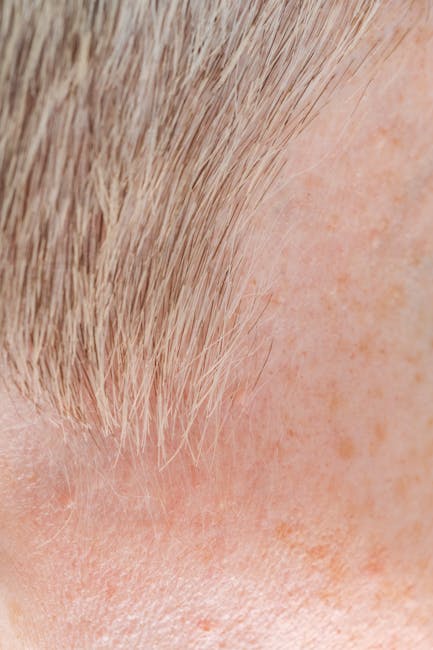This beloved beverage, caffeine, with its unique aroma, distinct flavor, and effective energizing effects, has become an indispensable daily choice for many students and workers. However, the stimulating effect of coffee seems somewhat mysterious: some people only need to drink one cup to stay energized all day; others may need to enjoy it several times a day to feel the effect; some can sleep soundly even after drinking coffee at night, while others follow the principle of “no coffee after noon” to avoid a sleepless night tossing and turning.
The origin of coffee is Ethiopia in Africa, where its characteristics were discovered by a shepherd over a thousand years ago. The shepherd noticed that after eating a certain plant (the coffee tree), the flock became unusually active, which eventually led people to recognize coffee. The long history of coffee bears witness to how it has become one of the three most popular beverages in the world, alongside tea and cocoa.
The reason why coffee can stimulate both sheep and humans is largely due to a central nervous system stimulant it contains—caffeine. Caffeine is not only present in coffee; other beverages such as energy drinks, tea, milk tea, and cola also contain it. Adenosine and its receptors in our brain are responsible for creating a sense of sleepiness, yet the molecular structure of caffeine is similar to adenosine, allowing it to bind preferentially with adenosine receptors and block adenosine’s normal pathway. As a result, we feel alert and energetic. In this way, caffeine effectively “hijacks” our brain, cutting off the signals that lead to tiredness.
However, the impact of caffeine on our body goes beyond wakefulness. It can also increase heart rate, raise blood pressure, and even affect mood, explaining why some people feel anxious or excited after drinking coffee.
The reason why individuals respond differently to caffeine is partly due to the different efficiency of the enzymes in the liver that metabolize caffeine. Our genetic differences, age, weight, and even gender can all have an impact on the effect of caffeine. For example, some people’s livers may contain more cytochrome oxidases, which help them break down caffeine quickly; others may be more sensitive to caffeine due to a lack of these enzymes, even experiencing rapid heartbeat or tremors. For these individuals, controlling caffeine intake is particularly important. Moreover, the caffeine content in some milk teas may far exceed that of coffee, which is why many people have trouble sleeping after consuming them.
Finally, it is worth noting that those who drink coffee regularly may experience a diminishing effect of coffee. This is because continuous intake of caffeine leads to a sustained occupation of adenosine receptors by caffeine, causing an increase in the body’s adenosine levels and making a person feel more easily fatigued.
If you find that you are easily fatigued after caffeine intake, it is recommended to slow down the frequency of coffee consumption and increase rest time to give the body’s adenosine a chance to break down, so the brain can react to caffeine effectively again. Furthermore, research indicates that long-term excessive coffee drinking can lead to an increase in the number of adenosine receptors, resulting in greater fatigue and thus a higher dependence on coffee.
So, for those who worry about caffeine causing insomnia, how can one enjoy the flavor of coffee without affecting sleep? First, it’s crucial to understand the metabolic pattern of caffeine in the body. In medicine, there’s a professional term for the rate at which drugs are eliminated – the drug elimination half-life, which is the time it takes for the drug concentration to drop to half of its initial value.
The half-life of caffeine is about 3 to 5 hours, let’s take the median value of 4 hours. This means that after caffeine is fully absorbed by the human body, its concentration in the body will drop by half in about 4 hours, and to a quarter after 8 hours. Therefore, people who are sensitive to caffeine should avoid consuming coffee a few hours before bedtime.
If you want to calculate precisely how long before bedtime one should drink coffee, you can refer to a caffeine content table to make a judgment. For example, if a type of coffee contains 150mg of caffeine, based on the half-life, to have the caffeine concentration in the body reduced to 40mg by sleep time, it may be necessary to drink coffee about 7 hours in advance.
Moreover, choosing coffee with low caffeine or decaffeinated is also a good method to enjoy the rich flavor of coffee without suffering from insomnia. There are many such alternatives on the market for consumers to choose from, which taste extremely close to regular coffee but do not cause insomnia. If you still cannot sleep, it is recommended to use hot milk or hot chocolate to replace coffee to help with sleep.
The correct way to consume coffee is recommended to be before feeling tired. Coffee takes some time from ingestion to complete absorption; usually, about 45 minutes after drinking coffee, caffeine begins to be fully absorbed and exert its effect. Based on the 4-hour half-life of caffeine, the concentration of caffeine will be highest between 45 minutes to about 4 hours and 45 minutes after drinking, during which it will continue to have a stimulating effect.
If you find yourself feeling tired at a specific time, such as at 10 a.m., consider drinking a cup of coffee about a half-hour before that time, around 9:30 a.m., to invigorate yourself. Likewise, drinking coffee around 1 p.m. is also a good strategy to maintain alertness in the afternoon. Further research suggests that taking a short nap after drinking coffee, followed by starting work, is a very effective way to stay alert.
A recent study in the UK found that drinking coffee before a nap can make one feel more refreshed upon waking. Researchers refer to this pattern as a “coffee nap,” which can help the brain clear away the sleep-inducing chemical adenosine in a short period of time. Also, because caffeine takes some time to have an effect, it coincides with the time when one wakes up. This pattern can also enhance the response to caffeine and improve memory.
However, it is necessary to consume coffee in moderation. Scientific research reveals that moderate consumption of coffee not only revitalizes but is also beneficial to health. Studies indicate that coffee may reduce the risk of diseases such as colorectal cancer, liver cancer, and cardiovascular disease. Another study published in the British Medical Journal suggests that high caffeine content in the blood may help with weight loss, reducing fat content, and lowering the risk of type 2 diabetes.
Despite the numerous health benefits of coffee, drinking too much can lead to negative effects, such as palpitations, insomnia, and other symptoms. Long-term and excessive consumption (more than 6 cups per day) can increase the fat content in the blood and significantly raise the risk of cardiovascular diseases. Therefore, we should enjoy coffee in moderation, and it is generally safe to drink up to 3-4 cups per day (about 400 milligrams of caffeine).
It’s also important to control the amount of sugar and cream in coffee, as they can add extra calories. And though coffee is enjoyable, one should not become overly dependent on it; adequate rest is the best way to rejuvenate. Coffee only temporarily postpones the feeling of tiredness, but real fatigue must be eliminated through rest.
Coffee is a miraculous beverage that can not only energize but also provide a delightful taste experience. Drinking coffee wisely and in moderation can be very beneficial for us. So, the next time you savor a cup of coffee, remember to think about the science behind it, and you may discover a whole new appreciation.
Thank you for following our content; we will continue to provide you with updates.







